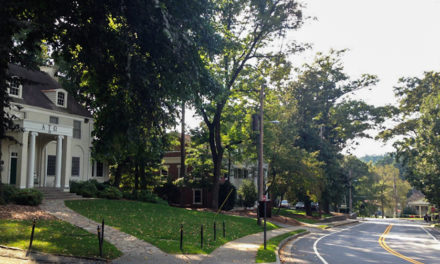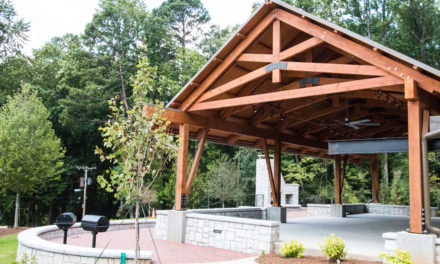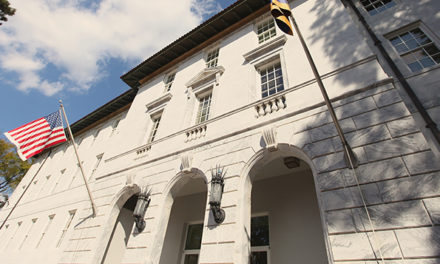On any typical afternoon at Emory University, the campus is rife with students relaxing in between classes and meetings – chatting with friends or squeezing in quality time with significant others to relieve stress during an otherwise hectic day.
As a third-year graduate student in the Laney Graduate School of Arts and Sciences, Karen McCarthy normally has a fairly busy schedule. However, she spends the majority of whatever free time she has on campus with her girlfriend.
“[My girlfriend and I] hold hands and kiss goodbye and all of that other sappy stuff people who are crazy for each other do,” said McCarthy, who studies in the Philosophy department. “No one I know has ever been less than happy for us, and we’ve never encountered anything like harassment.”
McCarthy, who came out approximately 10 years ago, identifies as a member of the Lesbian Gay Bisexual Transgender (LGBT) community at Emory, an environment where she said she feels “perfectly safe” from most instances of homophobia.
Outside organizations have now taken notice of the University’s commitment to a healthy LGBT-community, and recently Campus Pride recognized Emory as having one of the top 25 most LGBT-friendly campuses in the country.
Campus Pride, a non-profit organization that collaborates with organizations and leaders at colleges across the nation to generate support for LGBT students, worked with the Huffington Post to rank 339 colleges, according to an Aug. 21 Huffington Post statement.
Emory University was the only institution in the southest to make the list.
According to Michael Shutt, the director of Emory’s Office of LGBT Life, Emory has always implemented progressive policies and programs geared towards increasing inclusion and fostering a positive environment for the University members who identify as LGBT. He added that Emory was the first university in the Southeast to open an Office of LGBT Life 21 years ago.
“We set a bar at that point in time because we were also the 10th [university] in the nation to do that – to hire someone and provide resources,” Shutt said. “It was early on that we were doing that.”
In addition, Shutt mentioned that this year marks the 40th anniversary of Emory’s Gay Liberation Committee, a group founded on campus in 1972 after the Stonewall Riots, an event that drove the beginning of the gay rights movement. The Gay Liberation Committee seeks to empower what Shutt called “queer leadership” at Emory.
Despite efforts that the University has made towards creating a safe space on campus for the LGBT community, some students believe that the University still has much room to improve.
College senior and Emory Pride co-president Shu Ong explained that she believes administrators needed to “focus on educating Emory’s community as a whole” in order to further “create a safer and more conducive environment for LGBT individuals on campus.”
“There have been few reported cases of outright harassment of LGBT individuals on campus that I know of,” she said. “However, I would say that there is also a general sense of apathy towards LGBT issues on campus and while a large majority of students are tolerant, they may not necessarily be accepting.”
The Office of LGBT Life plans to work with different student groups to plan and host upcoming events that will help the University move forward in order to provide additional leadership opportunities and support systems for LGBT individuals at Emory, according to Shutt.
“Emory is not different from the real world,” Shutt said. “We know that our students are bumping up against sexism, racism, etc. everyday. What we want to do as an institution is ensure that we’re doing everything we can to remove barriers so that students can do everything they want to achieve.”
– By Stephanie Fang
The Emory Wheel was founded in 1919 and is currently the only independent, student-run newspaper of Emory University. The Wheel publishes weekly on Wednesdays during the academic year, except during University holidays and scheduled publication intermissions.
The Wheel is financially and editorially independent from the University. All of its content is generated by the Wheel’s more than 100 student staff members and contributing writers, and its printing costs are covered by profits from self-generated advertising sales.





